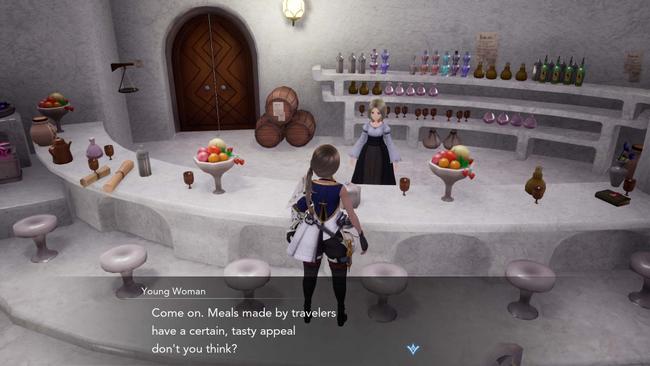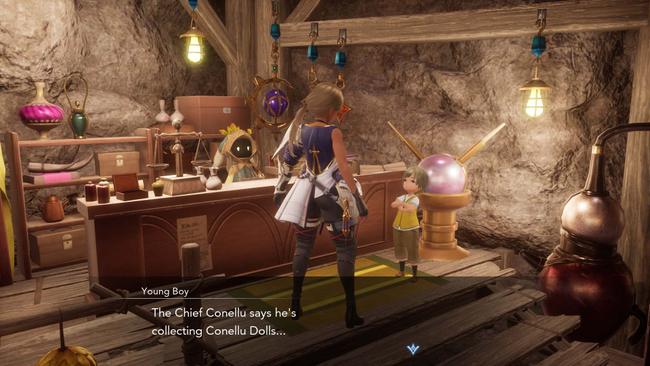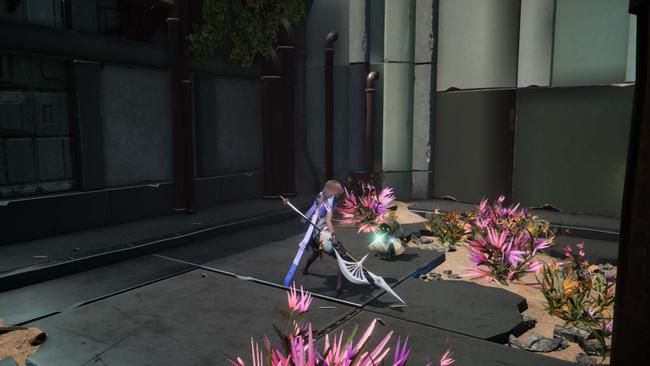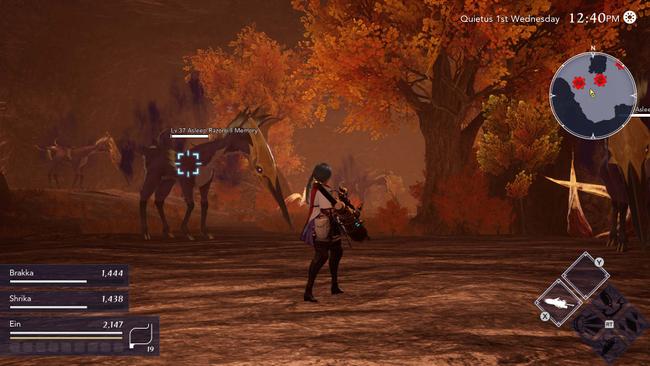
Harvestella Review
I’ve tried to get into farming simulator games for most of my life, and I think the filter for me has always been the “sim” part. I have spent years hearing praise and enthusiasm for games like Harvest Moon and Story of Seasons, but I found myself bouncing off immediately when I gave them a try myself. Evenfarming sims that lean more into RPG elements like Rune Factory just have not been able to grab me as much as I wish they did. The closest I’ve gotten would still not even be considered as living in the same county, and that would be the Atelier series and its item-crafting focus. Despite this apprehension, something about Harvestella just sang to me when it was revealed.
Harvestella is the gateway farming sim for the RPG crowd that I’ve been craving for years. Granted, it achieves this by largely pointing the focus away from the farming sim aspects, but it achieves it all the same. Harvestella is story-driven RPG first, an action-adventure game second, and a farming sim third. It tackles all of these things well. I don’t think I can point to a game ruining flaw in Harvestella’s formula, but I do have a couple issues.
You start this adventure as a silent amnesiac protagonist of your own design. Criticism has been made of Harvestella’s character creator for being too limiting, and I can definitely agree that it's a bit basic. After being introduced to the state of the world, which is being thrown out of balance thanks to a plague that comes called the Quietus, you’re given a plot of land and are left to do what you wish. You should, of course, follow the main story quests but I never felt the game was demanding me to do so.

This is one of the more interesting aspects of Harvestella: There’s a calendar, weather, and season system, but no hard time limit in terms of progressing the story. There’s a time limit for each individual day, one that is honestly a bit too restrictive in how fast days go. This works though given the lack of an overarching time limit, and the increase in efficiency as you continue to play and your scope increases. You are given various quests (save a town, help an old man find his penpal, help an amnesiac mercenary, etc), it is up to you to figure out how best to accomplish them and at what pace to do so. This may seem like a waste from a game mechanics perspective, but it does wonders for the game’s peculiar tone. For all intents and purposes, Harvestella is a game about living in a dying world. This isn’t the type of game like Majora’s Mask where the world is in an immediate state of crisis.
Instead, Harvestella’s world is on a slow decline. The environments are simply gorgeous (even if it is clearly quite taxing on the Switch), and the world the development team created is one I adore simply existing in. You gather this from the people you talk to and help, all living their lives day by day just to keep it all together. You can feel things on the decline, there’s clearly something going on behind the scenes too, but most of your time with Harvestella is focused on just helping normal people out with their problems.
That’s how I saw it, anyway. I could not pull myself away from the game’s side content, it has probably some of the better-written sidequests I’ve seen in an RPG in years. As someone who doesn’t speak Japanese, it can be hard to critique the quality of dialogue in a JRPG. Sometimes a bad localization can mar a good narrative , and other times a great localization can salvage unsteady plot-writing. To be good at localization, you need to be a great writer yourself. Harvestella is the best of both worlds. The dialogue is witty and charming to read, but you can also tell that the writing itself under the layer of translation is just strong. This is most apparent in the game’s side quests writing, I feel, but never misses the mark in the main story either.

The game’s narrative is pretty out there, in ways I found wonderfully delightful. You can see quite early on with time travel, the potentially world-ending seasonal plague, and a talking Unicorn. This is a fantasy game, one that really goes all out with its world and the mythical elements it pulls from to inhabit said world. What makes it work is that the game puts extra work into making it all seem believable. It's why I want to focus so much of this on the side quests over the main story, because what won me over into loving this game was seeing how the people of this world try to adapt and overcome their problems. I was not expecting to memorize the names of NPCs in a game with a tight enough budget to make most of them slightly modified versions based on a tiny pool of character models.
The gameplay, unfortunately, does not reach the peaks of the atmosphere and narrative. The combat is probably the game’s weakest link, on the merit of it just being kind of simplistic. It plays like a typical hack-n-slash with a Job System built on a budget. I could go into it further, but Harvestella is the kind of game that you can get a full grasp on from just playing a couple of minutes of (which you can do with the demo, thankfully). Movement feels alright your attacks don’t have a good amount of impact, and the job system is neat but awkward. Each job unlocks by recruiting a new party member, and each job can be leveled up in a skill tree. It’s all very standard, and I didn’t feel like there was too much variety between the job classes, but it does work. I never found myself having an outright bad time with Harvestella’s combat, but I’d be lying if I said I wasn’t frequently left wanting more.
The most baffling thing hidden behind an unlock is a dodge, and that’s on a class-by-class basis. It also doesn’t help that it is mapped onto the same button as your sprint, and both drain a lot of your stamina meter. So you’ll often find yourself stopping and going during fights to just chug restorative items for your stamina. I get that you needed to implement some restrictions with the rest being so open-ended, but I think there needed to be an extra balance pass with how often I found myself taking a lot of damage and running out of stamina.

What also doesn’t help Harvestella is playing it on the Nintendo Switch. I think most of the time, when running around towns or farming, the game looks and plays alright. Not a looker by any means resolution-wise, but I’ve played worse. However, when out in a dungeon or field the game’s framerate becomes very inconsistent. This gets even worse during combat, with boss battles seemingly dropping the framerate severely depending on how extreme they get. And they can get extreme, and rather early. One of the earliest bosses feels like it was pulled directly out of Final Fantasy XIV Heavensward, which I can commend for its ambition, but it ran laughably on Switch. If you have the option, play Harvestella on PC.
The farming mechanics are rather simple, and they require very little effort, but thankfully cannot be ignored altogether either. You have a farm on your land that you can expand and improve over your playthrough, you can grow a variety of plants and vegetables. I’m quite impressed with the large variety of things you can grow, and thanks to a crafting and cooking system easily accessible in your house, there’s more you can do than just sell them. That’s pretty standard for the genre, but I think streamlining all of this led to me actually getting invested in the routine instead of being annoyed like I was with Rune Factory 5.
I criticized the length of each day, but I will admit it helps you get through the seasons quicker to not keep things too stale. Between seasons, Quietus will take place to serve as a way to wipe the slate clean on your farm. Narratively, this serves as a time when everyone stays indoors out of fear of dying. Your character can survive this time of year, which will even let you do an optional dungeon while everything else is on hold.

From a gameplay perspective, Quietus works as a fun way to keep farming fun. Since vegetables are typically tied to seasons, this keeps you from being over-reliant on any particular type of crop. As you explore and find other towns, you’ll gain new types of seeds to plant. This in turn gets you vegetables to sell or make into food. This food can be used in battle or given to people around towns. There’s also a checklist of requests for your farm, which can improve your farming efficiency in a large variety of ways. Farming feeds into the gameplay loop well, helped immensely by it not requiring so much effort.
Harvestella’s priorities definitely skew more RPG than Farming Sim in a way I’m certain fans of the latter’s genre won’t be hot on. But, if viewed as an RPG that dabbles in Farming Sim elements, I think it’s a great success. If you come here for a cozy RPG with a brilliant story and endearing characters, you will absolutely get that. If you’re looking to be tested or challenged, you might want to look elsewhere.
Harvestella is the type of game that’ll just simmer in your brain the further you get from it, I’m convinced this will be a beloved cult classic for years to come. There’s so much here that feels like an experiment, and it’s surprising how much of it comes together into a great package despite its shortcomings. When your greatest sin is being maybe a tad too simple, I call that a success.I think there’s a lot of room for growth in a hypothetical follow-up with a larger budget, and, hopefully, Square Enix agrees with me.